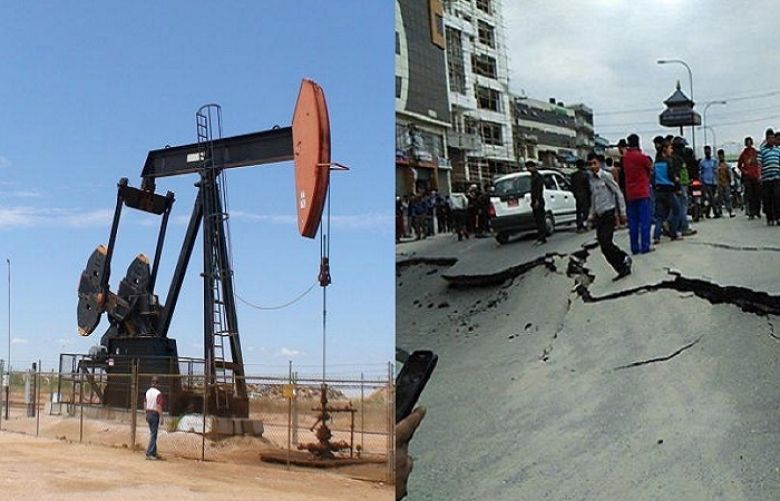US Geological Survey backpedals on previous research on waste water fracking-induced earthquakes that have shaken eight states in last seven years.
As the US Geological Survey confirmed on Thursday, in the last seven years, geologically staid parts of the US have seen earthquakes like they haven’t seen for millions of years. And they were triggered by drilling for oil and gas.
The drilling – or rather, the process of injecting water deep underground – has been triggering earthquakes in Alabama, Arkansas, Colorado, Kansas, New Mexico, Ohio, Oklahoma and Texas.
The most obvious question is: what took you so long, USGS? Over those seven years, other scientists have speculated about whether this rise in earthquakes has anything to do with the injection wells used by the fracking industry to dispose of the water used in the process.
For the most part, the report does not pin the blame on fracking itself – pumping large volumes of water, sand and chemicals into rock formations in order to free oil or gas – but rather on the associated process of injecting wastewater deep underground using injection wells.
The rise of fracking after 2005’s Energy Policy Act slightly preceded and coincided with the rise in earthquakes.
Oklahoma averaged a handful of earthquakes of magnitude 3 or greater from 1975 to 2008.
Then, in 2009, it had 20.
In 2011, the number of earthquakes in the state rose to over 60, and Oklahoma was hit by its largest earthquake in recorded history – magnitude 5.7. Immediately after the quake Katie Keranan, an assistant professor of geophysics at the University of Oklahoma, partnered with scientists from the USGS and Columbia University’s Lamont-Doherty Earth Observatory to install two dozen seismometers in Prague.
Within a year, Keranan had data that indicated that the pressure from injecting water deep beneath the earth hadsnapped three fault planes, one after the other.
Not long after, in 2012, an injection well was linked to quakes in Youngstown, Ohio. The state’s governor issued an executive order requiring operators to conduct seismic studies before the state would issue well permits.
In that same year, David J Hayes, deputy secretary of the US Department of the Interior, wrote a public letter stating that USGS research showed that there were no conclusive examples that wastewater injection triggered major earthquakes, even when it happened near a known fault.
The USGS report published on Thursday does provide such examples.
Not every well triggers an earthquake. In fact, a relatively small number of wells seem to have caused the majority of earthquakes, according to a report led by Keranan, which found that out of the thousands of disposal wells in the central US, just four them induced 20% of the seismicity from 2008 to 2013 in the central US.
In September of 2013, the Society of Petroleum Engineers held an unprecedented meeting on “injection-induced seismicity”, though they did not invite the press or the public. The number of earthquakes in Oklahoma reached 103 in 2013.
In November of last year, the USGS and the Oklahoma Geological Survey co-hosted a workshop that included about 150 participants from academia, industry and government – the result of that meeting is the report that was released this week. That year, 2014, the number of earthquakes in Oklahoma reached 585 in one year.
Compared to earlier statements, the USGS report is a sharp turnaround from its previous stance. But it’s still a relatively mild document – one that advises more research, rather than specific actions. The work of clarifying connections between injection wells and earthquakes has been left to people such as Keranan, who left Oklahoma shortly after the Oklahoma Geological Survey published a rejection of a study she had placed in geology, which linked the quakes to nearby disposal wells.







